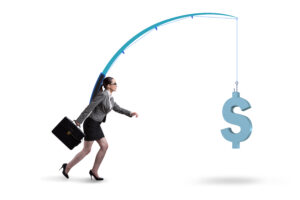Internet has become an essential tool, not only for adults but for minors as well. As for the kids, Internet is a necessary tool for doing their homework. Through netsurfing they are capable of checking on virtual encyclopedias and libraries, among other websites, which have the resources they need in order to resolve their concerns. It is even used very often to play and interact with people of different nationalities.
Many parents have warned their children about the hazards of speaking to strangers, giving information when they receive calls, let strangers enter the house when an adult is not at home. They even monitor the TV shows their children see, the books they read, or the magazines they get into their hands. However, such supervision must be applied to the websites their children visit on Internet, and warn them about the risks they might face on the web.
Internet’s growing use by children involves real and dangerous risks. This is the reason why it is imperative that you, as an adult, make safe and responsible decisions to keep children away from becoming victims of the wrong use of this tool. Keep in mind that not everything you find on Internet is reliable, and children have access to loads of information, therefore, they must be warned, especially for the interaction they might have with other users. In many cases, your children might believe they are talking to another child, but they are actually chatting with an adult who is cheating on them.
10 Actions You can Take Right Now To Improve Your Computer Security: Am I really at risk?
Remember, children are going through that stage in which they are constantly eager to satisfy their curiosity, explore, learn and discover the world. Internet is the tool they make use of for this purpose. However, they might find adult contents, in which they could have access to pornography, violence or direct relationships with adults.
“Internet’s growing use by children involves real and dangerous risks. This is the reason why it is imperative that you, as an adult, make safe and responsible decisions to keep children away from becoming victims of the wrong use of this tool.”
As a parent, it is important to be aware of the existence of the National Bureau of Consumer Protection, which enforces and ensures the compliance with the Children’s Online Privacy Protection Act or its acronym COPPA. This act states that websites operators must notify the parents and seek for their consent before and whenever they request, use or reveal the personal information of a child. Through this law, you will have control over the information that your children provide. Likewise, you will be able to cancel the permission when you deem this necessary.
The Children’s Online Protection was passed on October 1998. It stated that if Internet was used to communicate harmful material to minors, it must be consider as a federal offense. For this reason, websites with adult content are legally bound to restrict the access to minors.
Five Tips To Protect your Personal and Financial Information on The Internet and A Surprise for You.
Some tips to protect your children from the Internet hazards are listed below:
- Set limits: Do not let your children stay long periods of time surfing on the web. You might set up schedules.
- Sound communication with your children: Talk to them and explain to them that online conversations are not safe, and that people not always show their real identity. Explain to them that meeting in person with people they have met online is dangerous.
- Do not allow your children to access to credit card numbers and passwords: Teach them that they do not have to provide such kind of information, neither personal data.
- Limit the connection service on line: Children will not have access to inappropriate websites. Check with your service provider the available lock-out options. You might also block them through the safety measures of your ISO or OSP.
- Do not let your child to create an email account without supervision: Once you consider your child is mature enough to have an email account, help him or her to sign in, and keep always an eye on the inbox and outbox of the account.
- Control of the external computers use: Remember that the computer at home is not the only one your children might have access to. For this reason, you must teach them how to properly use any other computer.
- Websurf with your children: Spend some scheduled time on Internet with your children, show the websites to do research for their homework, the right sites to play and keep them away from chatrooms. Let them show you the websites they visit regularly or those that are mostly mentioned among their friends.
- Be careful with discussion groups: Children frequently become the target of sexual offenders on these sites.
You can always teach your children to have a safe surfing.
Source:
https://www.consumidor.ftc.gov/temas/seguridad-de-los-ninos-en-internet
https://www.consumidor.ftc.gov/articulos/s0030-ninos-y-mundos-virtuales









